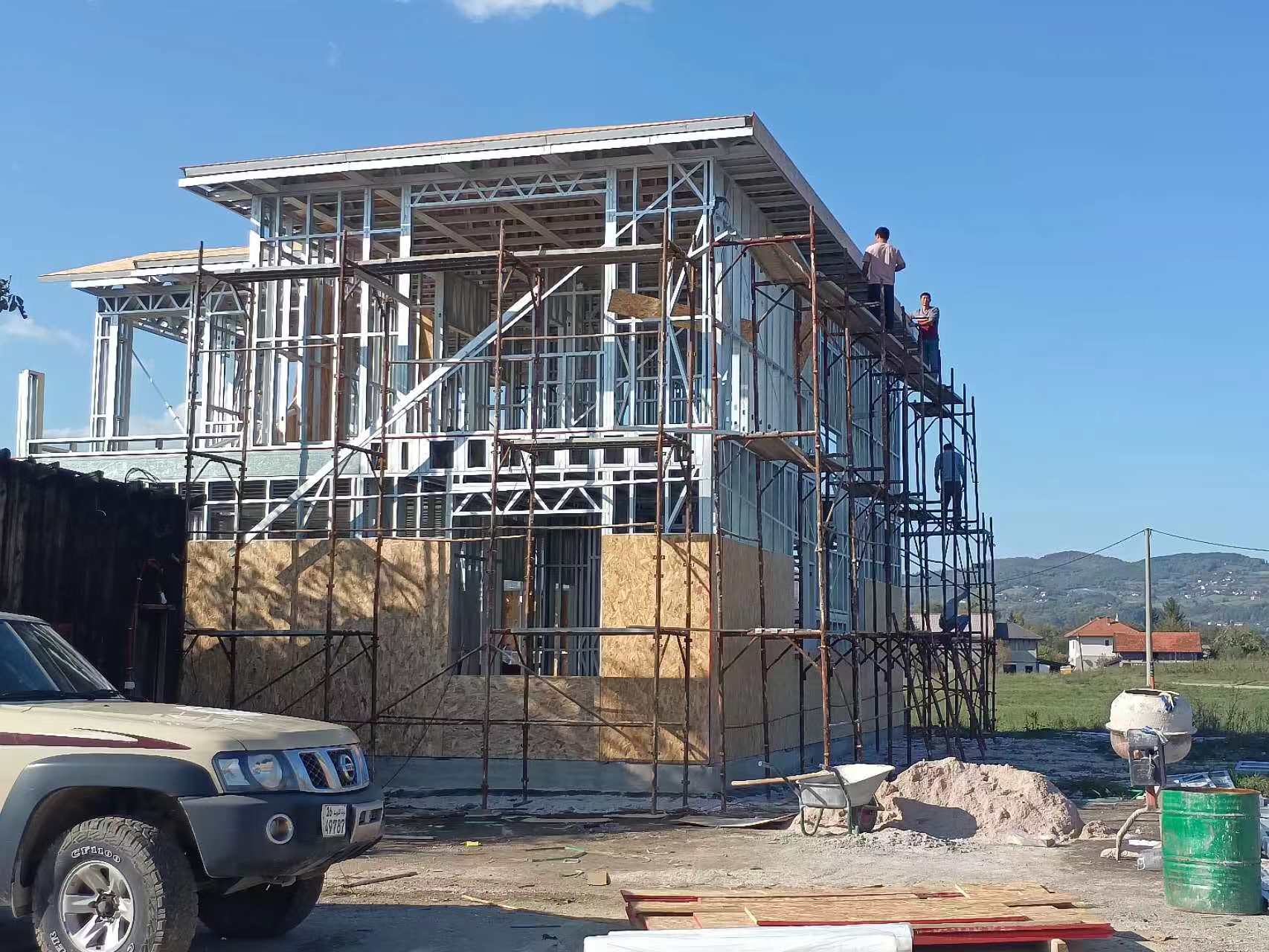The Load-Bearing Capacity of Light Steel Villas
2024-10-20 20:03
In recent years, light steel villas have gained popularity due to their unique structural advantages. However, many people express concerns about their load-bearing capacity when considering building a light steel villa. So, what exactly is the load-bearing capacity of light steel villas? This article will provide a detailed analysis of the load-bearing characteristics and safety of light steel villas.

Structural Characteristics of Light Steel Villas
The main structure of a light steel villa is constructed using light steel materials combined with advanced construction techniques. Its structural characteristics include:
1. Lightweight and High Strength: Light steel materials have high strength and good ductility, providing greater load-bearing capacity compared to traditional brick and concrete structures.
2. Modular Design: Light steel villas typically use a modular design, which is convenient and flexible, allowing for uniform load distribution.
3. Good Seismic Performance: Light steel structures have excellent seismic capabilities, effectively resisting the impact of natural disasters such as earthquakes.
Factors Influencing Load-Bearing Capacity
The load-bearing capacity of light steel villas is influenced by various factors:
1. Material Selection: The quality of light steel directly affects load-bearing capacity. High-quality light steel materials have higher strength and durability, allowing them to support greater loads. Generally, the yield strength of structural steel ranges from 250 MPa to 550 MPa, and specific choices should be based on design requirements.
2. Design Standards: The design of light steel villas should comply with national and local building codes and standards. Professional architects and structural engineers will develop corresponding design plans based on building use, load requirements, and environmental factors to ensure safety.
3. Foundation Construction: The foundation is the basis for the load-bearing capacity of light steel villas. Appropriate foundation depth, width, and material selection can effectively disperse and bear the weight of the upper structure. If the foundation is unstable, the load-bearing capacity of the light steel structure will also be affected.
Analysis of Load-Bearing Capacity
According to engineering design, the load-bearing capacity of light steel villas typically meets the following standards:
1. Dead Load: For residential light steel villas, the dead load generally reaches 150-200 kg/m2, meeting daily living requirements.
2. Live Load: The design for the live load of light steel villas is usually 150-200 kg/m2, suitable for various uses such as residential and office spaces.
3. Wind Resistance: The design of light steel villas also considers wind resistance, effectively countering the effects of wind forces to ensure residential safety.
Importance of Construction and Maintenance
The load-bearing capacity of light steel villas relies not only on materials and design but is also closely related to construction quality. During construction, ensuring the strength of each connection point and the precise fit of each component is crucial for maintaining the overall stability of the structure.
Additionally, regular maintenance and inspections are important for ensuring load-bearing capacity. Any structural issues should be addressed promptly to prevent potential hazards from worsening.
Conclusion
With their superior load-bearing capacity and safety, light steel villas have become a new trend in modern architecture. Through reasonable design, high-quality materials, and strict construction standards, light steel villas can meet various residential and commercial needs. When choosing a light steel villa as a residence, understanding its load-bearing capacity and safety is fundamental to ensuring future comfort and peace of mind. Whether facing natural disasters or meeting everyday usage, light steel villas demonstrate strong load-bearing capabilities, making them an ideal choice in modern architecture.



